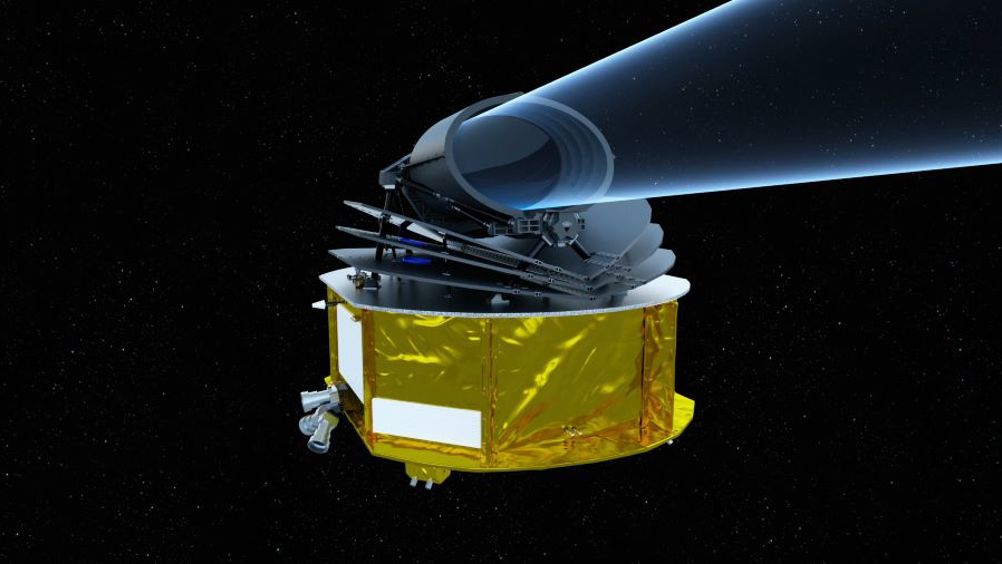Ariel exoplanet survey mission greenlit by ESA
ESA’s space-based Ariel mission, which will survey around 1,000 planets beyond our solar system, has been formally adopted by the agency.

Scheduled to launch in 2029, Ariel will be the first mission that will study the chemical composition and thermal atmospheric properties of exoplanets as they transit distant stars. These measurements will be observed using a one-metre class cryogenic telescope that will operate at temperatures of 35-40 Kelvin (-238 to -233 Celsius), collecting visible and infrared light. An onboard guidance system will allow the telescope to focus on exoplanets with high precision, while a photometer and spectrometer will help detect the presence of clouds as well as the chemicals in the planets’ atmospheres.
UK space: A new world of opportunity
“Ariel will enable planetary science far beyond the boundaries of our own Solar System,” said Günther Hasinger, ESA’s Director of Science. “The adoption of Ariel cements ESA’s commitment to exoplanet research and will ensure European astronomers are at the forefront of this revolutionary field for the next decade and well beyond.”
Register now to continue reading
Thanks for visiting The Engineer. You’ve now reached your monthly limit of news stories. Register for free to unlock unlimited access to all of our news coverage, as well as premium content including opinion, in-depth features and special reports.
Benefits of registering
-
In-depth insights and coverage of key emerging trends
-
Unrestricted access to special reports throughout the year
-
Daily technology news delivered straight to your inbox










UK Enters ‘Golden Age of Nuclear’
The delay (nearly 8 years) in getting approval for the Rolls-Royce SMR is most worrying. Signifies a torpid and expensive system that is quite onerous...